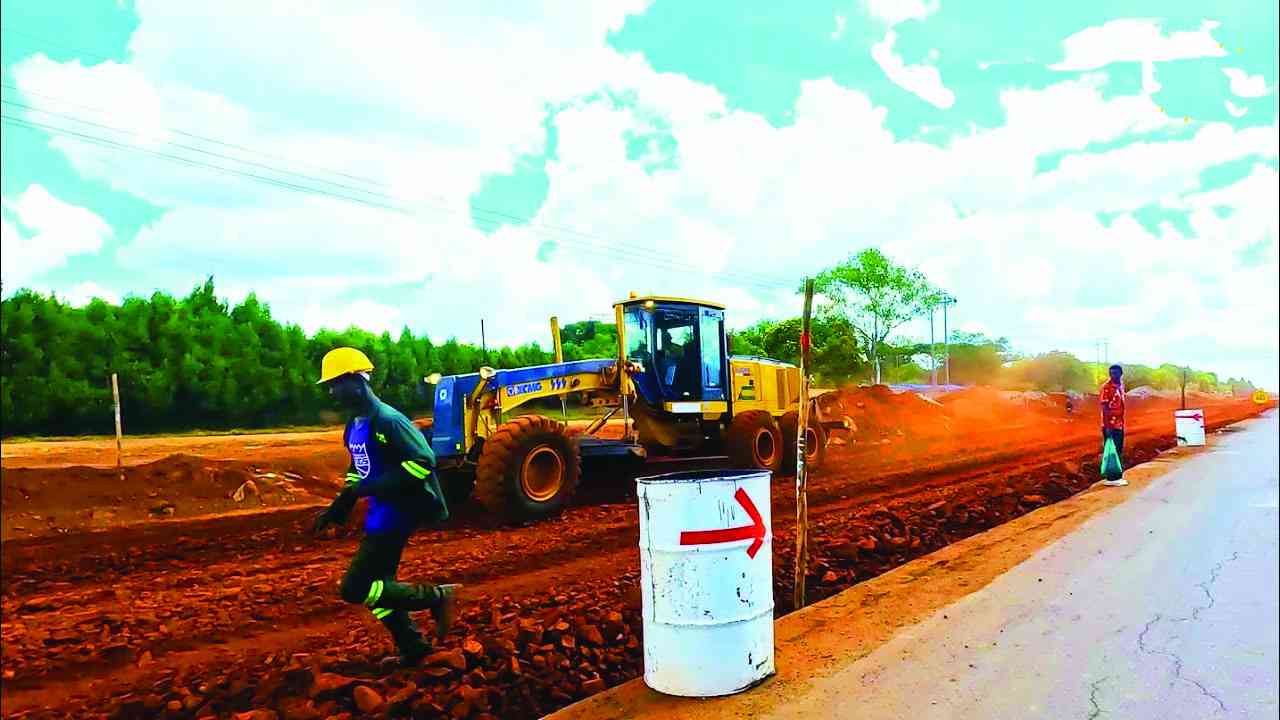
AS we navigate the winding paths of our lives, it is easy to become consumed by the frustrations and inconveniences that arise along the way.
Much like the residents of Zimbabwe currently dealing with traffic congestion and road closures during a major infrastructure project, we often find ourselves caught up in the disruptions of the present, failing to see the bigger picture.
However, if we shift our perspective, we can begin to recognise that these temporary obstacles are merely a part of a greater cyclical pattern - one that promises smoother journeys and brighter days ahead.
The Zimbabwean government's effort to build new roads in preparation for an upcoming Southern African Development Community (Sadc) heads of state meeting is a prime example of this cyclical nature of progress.
While the current traffic jams and detours may be causing significant inconvenience for the local population, they are a necessary precursor to the improved transportation network, which will soon emerge. This pattern of disruption leading to progress is one we see repeatedly throughout history and in our own personal lives.
In our individual journeys, we too experience these ebbs and flows, these cycles of challenge and growth. We may find ourselves facing financial difficulties, relationship struggles, or health setbacks, only to eventually emerge stronger and more resilient. It is easy to get caught up in the frustration of the present moment, but if we take a step back, we can recognise that these obstacles are not permanent; they are simply part of a larger journey that will lead us to a brighter future.
Just as the newly paved roads in Zimbabwe will eventually ease the traffic congestion and provide a more efficient means of transportation, the challenges we face in our lives can pave the way for personal growth, newfound opportunities, and a deeper appreciation for the good that is to come.
It is all too common for us to fixate on the immediate discomfort, failing to see the bigger picture and the positive outcomes that often lie just beyond the horizon.
- Sadc meets over water, energy and food security
- Opposition loses hope on reforms
- A regional approach is needed to address the electricity problem
- Anti-sanction music gala unites artistes
Keep Reading
One of the key lessons we can take from Zimbabwe's road construction project is the importance of adaptability and resilience. As the local population navigates the changing traffic patterns and road closures, they are forced to find alternative routes, adjust their schedules, and embrace a level of flexibility that may have been unnecessary before. In the same way, our ability to adapt to the ebbs and flows of life is a crucial skill that can help us weather the storms and emerge stronger on the other side.
Furthermore, the Zimbabwean government's decision to undertake this infrastructure project in preparation for a significant diplomatic event highlights the importance of long-term thinking and strategic planning. Rather than being content with the status quo, they have recognised the need to invest in the future and create a more favourable environment for their guests and their own citizens. This foresight and willingness to endure short-term disruptions for the sake of long-term gains is a valuable lesson for us all.
As we reflect on the cyclical nature of life, it is important to remember that the challenges we face today are not permanent; they are simply part of a larger journey that will ultimately lead us to a better place. Just as the people of Zimbabwe will soon be able to enjoy the fruits of their labour and the smoother roads that emerge from the current chaos, we too can find solace in the knowledge that our own struggles and setbacks are not the end of the story.
By embracing a more holistic perspective and recognising the cyclical patterns that govern our lives, we can learn to navigate the ups and downs with greater resilience and optimism. When faced with a difficult situation, we can remind ourselves that this too shall pass, and that better days are on the horizon.
We can find comfort in the knowledge that the challenges we face today are not permanent, but rather stepping stones towards a more fulfilling and enriched future.
The ongoing road construction project in Zimbabwe serves as a powerful metaphor for the cyclical nature of life. While the current disruptions may be frustrating, they are a necessary part of the process that will ultimately lead to a more connected and efficient transportation network.
Similarly, the challenges we face in our own lives are not permanent obstacles, but rather opportunities for growth, adaptation, and the realisation of a brighter tomorrow.
By embracing this perspective and cultivating the resilience to navigate the ups and downs, we can find solace in the knowledge that life is indeed a cycle - one that is constantly renewing, evolving, and offering us the chance to create the future we desire.
Just as the people of Zimbabwe will soon enjoy the benefits of their infrastructure investments, we too can look forward to the rewards that await us at the end of our own personal journeys, if only we have the courage to endure the temporary disruptions and keep our sights set on the horizon.
However, this cyclical nature of life is not always easy to embrace. The discomfort and challenges we face can often feel overwhelming, leaving us feeling lost, frustrated, and uncertain about the future. It is during these times that we must remind ourselves to step back and take a broader view of our circumstances.
One way to do this is by reflecting on the cycles we have already experienced in our lives. Think about the times when you have faced a significant obstacle or setback, only to emerge on the other side stronger, wiser, and more resilient. Perhaps it was a difficult breakup that led you to discover your true passions, or a job loss that propelled you towards a more fulfilling career path.
By acknowledging these past cycles of growth, we can cultivate a sense of hope and trust that the current challenges we face will also lead to positive transformation.
It is also important to recognise that the cycles of life are not limited to our individual experiences. Throughout history, we can see the ebb and flow of civilisations, the rise and fall of empires, and the constant evolution of social, political, and technological landscapes. By understanding that we are part of a larger, interconnected tapestry, we can gain a deeper appreciation for the cyclical nature of existence and the resilience of the human spirit.
Moreover, embracing the cyclical nature of life can also help us to develop a greater sense of patience and acceptance. Rather than resisting the inevitable changes and challenges that come our way, we can learn to flow with them, trusting that the discomfort of the present moment is merely a prelude to a brighter future.
This mindset cannot only help us to navigate our own personal journeys with greater ease, but it can also foster a more compassionate and understanding approach to the experiences of others.
As we continue to navigate the winding roads of life, let us remember that the obstacles and disruptions we face are not permanent. They are simply part of a larger cycle of growth and transformation, one that promises smoother journeys and brighter days ahead.
By cultivating resilience, adaptability, and a holistic perspective, we can learn to embrace the cyclical nature of existence and find the courage to endure the temporary challenges that pave the way for our personal and collective evolution.
Until then, we are blessed to be a blessing (#B2BAB). We were here, becoming better, making our mark, and leaving our footprint as we make the world a better place!
- Chirenje writes in her capacity as a citizen of Zimbabwe. Follow her on social media for more Lifezone with Grace conversations on Twitter: @graceruvimbo; Facebook: Grace Ruvimbo Chirenje; Instagram: @graceruvimbo











